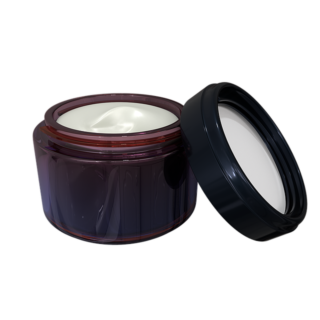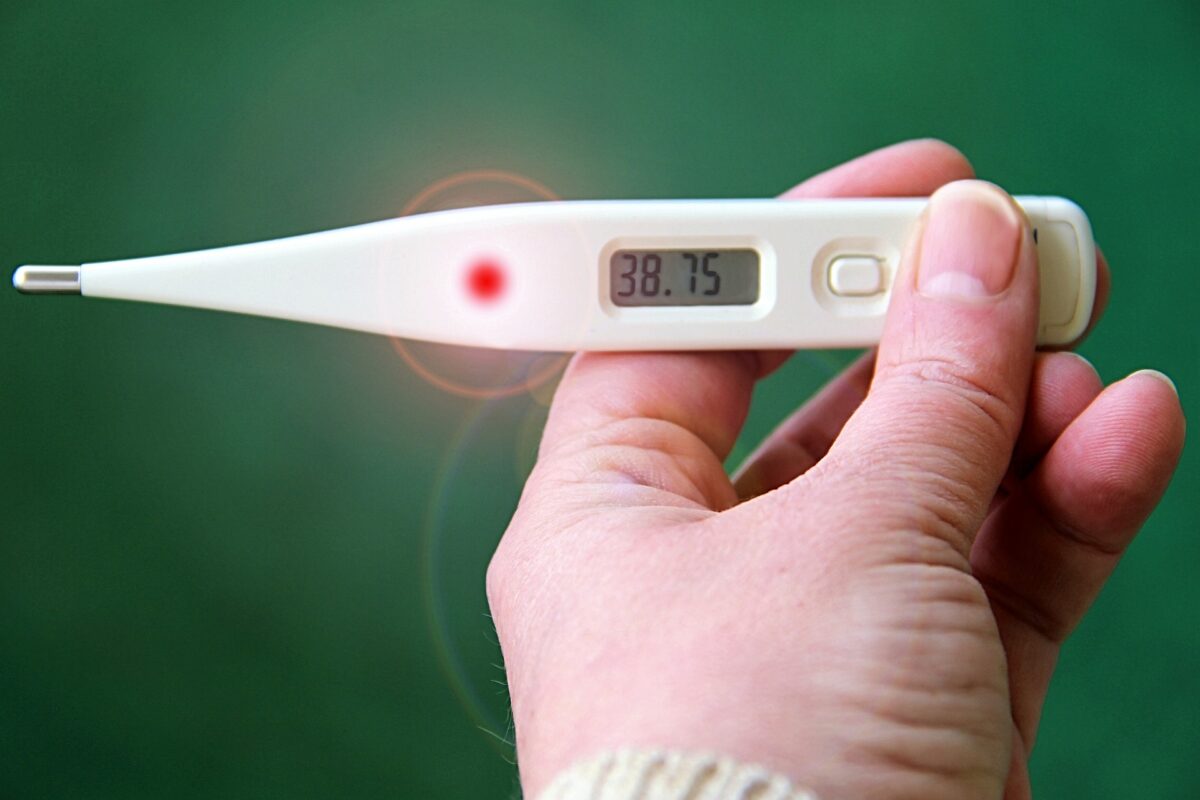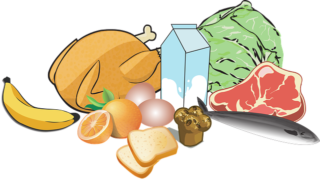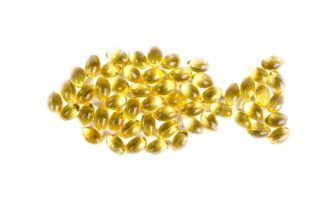When it comes to testosterone, more isn’t always better. In fact, having too much testosterone can actually be just as problematic as having too little. That’s because there are different types of testosterone, each with its own unique function in the body. Here’s a quick rundown of the different types of testosterone you may see on a blood test and what they mean.
Total Testosterone:
This is the most commonly measured type of testosterone. It includes both “free” testosterone (the active form that binds to receptors and produces effects in the body) and “bound” testosterone (which is bound to sex hormone binding globulin [SHBG] and is inactive). The total testosterone test can be helpful in diagnosing conditions like low testosterone or androgen deficiency, and can also help monitor the effectiveness of treatment.
Free Testosterone:
As its name suggests, free testosterone is the “unbound” or active form of the hormone. This is one of the forms that’s available to bind to receptors and produce effects in the body. Because it’s unbound, it’s also the form that’s most easily measured in blood tests.
The percentage of free testosterone that’s considered optimal varies depending on the source. Some say that levels below 2% are indicative of low testosterone, while others recommend levels closer to 5%. Still, others claim that there’s no such thing as an “optimal” percentage. What is more important is understanding the symptoms of low testosterone in the context of blood test results.
Common symptoms of low testosterone include fatigue, low sex drive, and erectile dysfunction. It can also lead to weight gain, muscle loss, and a decrease in bone density.
Bioavailable Testosterone:
Bioavailable testosterone includes both free testosterone and “weakly bound” testosterone, which is bound to albumin (a protein in the blood). This form of testosterone is considered more biologically active than total or free testosterone because it represents the amount of hormone available to bind to receptors and produce effects in the body.
Bioavailable Testosterone = Free Testosterone + Albumin-Bound Testosterone
Sex Hormone Binding Globulin (SHBG):
SHBG is a protein that binds to testosterone and other hormones, including estrogens, dihydrotestosterone (DHT), and thyroid hormones. By binding to these hormones, SHBG regulates their activity and ensures they remain at optimal levels. Because SHBG bound hormones are inactive, increases in SHBG can lead to decreases in total bioactive hormone levels. Therefore if your percentage of free testosterone is low (Less than 2%) but total testosterone is adequate, it could be an issue of too much SHBG.
How to increase bioactive testosterone:
There are many ways to increase bioactive testosterone, some more natural than others. One way is through exercise. Exercise releases hormones such as testosterone and growth hormone, which can help to improve muscle mass and bone density. Diet is also important, eating foods that are high in protein and healthy fats can help to increase testosterone levels.
Additionally, reducing stress levels can be beneficial, as stress can release cortisol which can inhibit testosterone production. Herbal therapies such as Tongkat Ali and Tribulus Terrestris are also thought to be effective at boosting testosterone levels. And finally, hormone replacement therapy can be an effective way to increase bioactive testosterone levels in men who have low levels.
Conclusion:
Therefore, when assessing your level of testosterone, it’s important to look at more than just your total or free levels. In addition to those measures, your bioavailable and SHBG-bound levels are important indicators of your overall hormone health. With all four measures taken into account, you’ll be able to get a clear picture of your hormone status and take steps to ensure that your levels are where they need to be for optimal health.
If you and your partner are trying to conceive, you may be looking for ways to increase your sperm count. Although there are medical treatments available, there are also some natural methods you can try. Here are 10 ways to increase sperm count naturally.
1. Eat foods rich in antioxidants
Antioxidants are nutrients that help protect your cells from damage. They’re found in many foods, including fruits, vegetables, nuts, and seeds. Some studies have found that certain antioxidants may improve sperm count and quality. One study found that men who took 2,000 IU of vitamin E daily for 84 days had significantly higher sperm counts than those who took a placebo.
Vitamin C is another antioxidant that’s been studied for its effects on sperm count. One small study found that men who took 1,000 mg of vitamin C daily for 2 weeks had higher sperm counts than those who didn’t take the supplement.
2. Get enough vitamin D
Vitamin D is important for many aspects of health, including fertility. A vitamin D deficiency has been linked with low testosterone levels and poor semen quality. One study found that men with vitamin D deficiencies had lower levels of testosterone and poorer semen quality than those who had sufficient levels of vitamin D. Another study found that taking a vitamin D supplement improved semen quality in men with vitamin D deficiencies. If you think you might be deficient in vitamin D, talk to your doctor about being tested and taking a supplement if necessary.
3. Eat more fatty fish
Fatty fish such as salmon, mackerel, and herring are good sources of omega-3 fatty acids which are important for many aspects of health, including fertility. Omega-3 fatty acids have been shown to improve semen quality in men with fertility problems. One study found that taking an omega-3 supplement improved sperm motility and morphology in men with low sperm counts . Another study found similar results , but only in men with normal or slightly low sperm counts.
If you don’t eat fish, you can get omega-3s from flaxseeds or take an omega-3 supplement. Just be sure to talk to your doctor before taking any supplements since they can interact with certain medications.
4. Get enough zinc
Zinc is an essential mineral that’s important for many aspects of health, including fertility . It’s needed for the production of testosterone and other hormones involved in reproduction. A zinc deficiency has been linked with low testosterone levels, poor semen quality, and increased risks of infertility. One study found that taking a zinc supplement improved fertility in men with zinc deficiencies. Another study showed that taking a zinc supplement increased testosterone levels and improved semen quality in infertile men. Good food sources of zinc include oysters, beef, lamb, pumpkin seeds, and dark chocolate.
5. Limit your alcohol intake
Alcohol consumption has been linked with decreased testosterone levels, poor semen quality, and increased risks of infertility. One study showed that moderate alcohol intake (up to three drinks per week) was associated with lower risks of infertility but heavy drinking (more than three drinks per week) was associated with higher risks of infertility. Another study showed that alcohol consumption was associated with lower semen quality but did not affect testosterone levels or the percentage of abnormal sperm. Therefore, it’s best to limit your alcohol intake if you’re trying to conceive or talk to your doctor about quitting altogether if you’re struggling with fertility issues.
6. Get regular exercise
Exercise helps to improve blood circulation, which in turn can improve your sperm count. A study published in the British Journal of Sports Medicine found that men who exercised regularly had higher sperm counts than those who didn’t exercise at all.
7. Reduce stress levels
Stress has been shown to have a negative impact on male fertility. In a study by Shebl et al. (2015), it was found that men who were under stress had a lower sperm count than those who were not. This is likely due to the hormonal changes that occur with stress. Cortisol, which is released in response to stress, can interfere with testosterone production and negatively affect sperm count.
There are many different ways to reduce stress, such as yoga, meditation, and aromatherapy. These methods can help to restore balance to the body and reduce the negative effects of stress on hormones.
8. Quit smoking
Smoking has been linked with a number of health problems, including DNA damage and decreased sperm count. A study by Lai et al. (2013) found that smoking causes significant DNA damage in the sperm of smokers, which can lead to decreased fertility and increased rates of miscarriage. Another study by Bohlin et al. (2010) found that smoking can decrease sperm count by up to 34%, and that this decrease in fertility is even more pronounced in men who smoke more than 20 cigarettes per day.
9. Get enough sleep
Sleep is important for all aspects of health, including reproductive health. A lack of sleep can decrease testosterone levels and reduce the quality of your sperm. Aim to get at least 7-8 hours of sleep every night.
10. Herbal therapy
Some traditional herbal medicines have been shown to have a positive effect on sperm count and quality. For instance Ashwagandha is an herb that has been traditionally used in ayurvedic medicine to treat a variety of issues ranging from anxiety and stress to infertility. There is some evidence that ashwagandha can help increase sperm count and improve sperm quality. One study found that men who took ashwagandha for 90 days had a 17% increase in sperm count and a 35% increase in sperm quality. Another study showed that ashwagandha improved the motility of sperm and increased the percentage of normal sperm cells. Ashwagandha is available in capsule or powder form and can be taken daily.
Conclusion
If you and your partner are trying to conceive, consider making some lifestyle changes. Natural male fertility strategies like the ones we’ve talked about in this blog post can make a big difference when it comes to boosting sperm count. Talk to your naturopathic doctor about which of these 10 methods might work best for you and start making some changes today. By taking charge of your health, you increase your chances of achieving a successful pregnancy.
Respiratory Syncytial Virus, or RSV, is a common respiratory virus that affects infants and young children. Although RSV is usually mild, it can sometimes lead to more serious health problems, such as pneumonia. There is no specific cure for RSV, but there are several natural treatments that can help relieve symptoms and speed up recovery. Here are 7 natural treatments for RSV:
1. Honey
Honey has long been used as a natural remedy for coughs and other respiratory infections. A 2012 study found that honey was more effective than dextromethorphan, a common cough suppressant, in relieving cough symptoms. Honey can also help thin mucus and make it easier to cough up. For added effect choose Manuka honey. Manuka honey has added antibacterial, antiviral and anti-inflammatory properties. Give your child 1-2 teaspoons of honey at bedtime or as needed throughout the day. Do not give honey to infants under 12 months old.
2. Steam Inhalation
Steam inhalation is a simple and effective way to relieve congestion and coughing associated with RSV. The steam helps thin mucus and makes it easier to breathe. Fill a bowl with hot water and hold your child’s head over the bowl with a towel over their head to trap the steam. Inhale the steam for 5-10 minutes, 2-4 times per day.
3. Humidifier
Running a humidifier in your child’s room can also help relieve congestion by adding moisture to the air. Just be sure to clean the humidifier regularly to prevent the growth of mold and bacteria.
4. Salt Water Gargle
Gargling with warm salt water can help reduce inflammation and swelling in the throat, which can make it easier to eat and drink. Mix 1 teaspoon of salt in 8 ounces of warm water and have your child gargle for 30 seconds 3-4 times per day. Spit the solution out after gargling. Another good option is a saline nasal spray from you local drug store. These products can be helpful in clearing out mucus and reducing inflammation from the upper respiratory tract.
5. Rest
Getting plenty of rest is crucial for helping your child recover from RSV or any other illness. Make sure your child gets plenty of fluids and take them out only when necessary so they can focus on getting better. If your child is having trouble sleeping due to congestion, an over the counter antihistamine or decongestant can be useful in the short-term. With these products you will have to be careful about age appropriate dosing so talk to your medical or naturopathic doctor first.
6. Diet
A diet rich in fruits and vegetables may help shorten the duration of a viral infection. Vitamin C is a nutrient that is known to boost the immune system, and foods like oranges, grapefruits, and broccoli are high in this nutrient. Additionally, zinc is another mineral that is important for immunity and can be found in foods like seafood, beef, and pumpkin seeds. It is important to stay hydrated during a viral infection, so drink plenty of fluids like water, broth, and herbal teas.
7. Immune supporting supplements
There are many safe and effective immune supporting supplements for kids that can help shorten the duration of a viral infection. Some of the most popular and well-researched supplements include vitamin C, zinc, vitamin D, elderberry syrup and probiotics.
Vitamin C is a powerful antioxidant that helps support the immune system. Zinc is also important for immune health, and probiotics are beneficial bacteria that help keep the gut healthy. For more information on these supplements and more check out my post on “5 natural ways to combat cold and flu season for kids”. All of these supplements can be safely given to kids to help them fight off a virus and recover more quickly. Consult with your naturopathic doctor for appropriate dosing.
Conclusion:
RSV is a common virus that affects infants and young children, but there are several natural treatments that can help relieve symptoms and speed up recovery time. Some home remedies for RSV include honey, steam inhalation, salt water gargles, humidifiers, rest, diet and natural supplements. If you think your child may have RSV, be sure to contact their medical or naturopathic doctor right away so they can receive proper treatment.
The Top 10 Supplements for Kids’ Health
As a parent, you want what’s best for your child. When it comes to their health, you want to make sure they’re getting all the nutrients they need to grow and thrive. But sometimes, despite our best efforts, kids don’t get all the nutrients they need from their diet alone. That’s where supplements come in.
Multivitamin:
A multivitamin is a supplement that contains a variety of vitamins and minerals. It’s a good way to ensure that your child is getting all the essential nutrients they need, even if their diet is lacking in some areas.
Kids often go through periods where they’re less than eager to eat certain foods. This is a normal stage in the development of taste buds, and starting with a good quality multivitamin will help your child get back on track during this time!
Compliance is the most important thing when it comes to giving kids supplements. If your child will not take their vitamins you might as well throw them in the garbage. It’s important to try a few different brands in order to see if your child has a specific preference. A naturopathic doctor with experience in working with kids can be very helpful in choosing a few options.
Some of my most frequently recommended include: SmartyPants Kids Formula, ND Shake for Kids by Orange Naturals, and Kids Multivitamin Liquid spray by Organika.
Probiotic:
Probiotics are live bacteria that are good for gut health. They can help with digestion and absorption of nutrients, and they can also help boost the immune system.
There are many different strains of probiotics and many of them have specific effects for specific conditions. This is another reason why it is important to consult with a Naturopathic doctor before choosing which product is right for your child. Some of my most recommended brands include: Culturelle, BioGaia, Vita Aid, and Genestra.
Fish Oil:
Fish oil is a good source of omega-3 fatty acids, which are important for brain development and heart health.
Omega-3 fatty acids are important for many aspects of health, including brain development and heart health. Research has shown that omega-3 fatty acids may help improve cognitive function in children, as well as protect against certain conditions such as depression and ADHD.
For example, a study published in the journal Scientific Reports found that children who consumed higher amounts of omega-3 fatty acids had better reading comprehension and short-term verbal memory compared to those with lower intakes. Another study published in BMC Public Health reported that children with higher levels of omega-3 fatty acids in their blood were less likely to exhibit symptoms of depression.
Additionally, studies have shown that consuming adequate amounts of omega-3 fatty acids is important for supporting healthy cardiovascular function in children.
For example, one study published in the American Journal of Clinical Nutrition found that higher intakes of fish oil was associated with improved arterial elasticity in adolescents. Overall, there is strong evidence to support the benefits of consuming omega-3 fatty acids for kids, both for brain development and overall health.
Some brands that I frequently recommend are NutraSea, Honibee, Nordic Naturals and Botanica.
Elderberry Syrup:
Elderberry syrup has long been touted as a natural remedy for fighting off colds and flu in both children and adults. This is due, in part, to the high antioxidant and vitamin content of elderberry. Studies have shown that elderberry can help boost the immune system and shorten the duration of cold or flu symptoms.
For example, one study found that elderberry extract was just as effective at reducing the duration of cold symptoms compared to acetaminophen (a common painkiller). Another study showed that taking an elderberry syrup daily during flu season could reduce the risk of developing illness by up to 58%. Overall, these findings suggest that elderberry may be a powerful tool for reducing the risk and severity of colds and flu in both kids and adults.
I often recommend Sambucol as they have independently researched their product for its efficacy.
Magnesium:
There is a growing body of research demonstrating the benefits of magnesium in certain childhood conditions. In particular, studies have shown that magnesium can help prevent and treat asthma, ease symptoms of irritable bowel syndrome, and even reduce symptoms of anxiety and depression.
Additionally, it has been shown to be effective in reducing the risk of osteoporosis later in life, which makes it an important supplement for children who are still growing. Overall, magnesium appears to be a safe and effective way to promote healthy development and overall wellness in children.
Magnesium is important for the body and it can be hard to know which type or salt would work best. Consult with your Naturopath as they will have experience in this area!
Zinc:
One study found that zinc supplements may help to prevent and treat diarrhea in children, which is a common cause of weight loss and malnutrition. Another study showed that zinc can be effective in reducing the frequency of respiratory infections in children, such as colds and flu.
Additionally, research has demonstrated that zinc can be beneficial for wound healing, particularly in patients with diabetes and other conditions that impair circulation.
Overall, these studies suggest that zinc plays an important role in protecting against certain diseases and conditions of childhood, as well as supporting growth and healthy functioning of the immune system.
It is important to speak with your naturopath about how best use zinc because it can lead other nutritional deficiencies if taken long term.
Propolis Spray:
Propolis is a substance made by bees that has antibacterial and anti-inflammatory properties. Propolis has long been known for its antibacterial and anti-inflammatory properties, which make it an excellent tool for boosting immunity and healing wounds.
A number of studies have shown that propolis can be effective in treating a variety of childhood conditions, including colds and flu, ear infections, and skin irritations.
For example, one study found that children treated with propolis showed significant improvement in symptoms of upper respiratory tract infections, such as coughing and fever, within just 3 days of treatment. The antibacterial properties of propolis also make it an effective treatment for ear infections by helping to eliminate the bacteria that cause these infections.
Finally, propolis has been shown to be effective in treating minor skin irritations like eczema or rashes by reducing inflammation and speeding up the healing process. Overall, these findings highlight the powerful benefits of propolis for children’s health and well-being.It’s great for boosting immunity and healing wounds.
I often recommend the propolis spray by Beekeepers Naturals for sore throats.
Vitamin C:
Vitamin C is an essential nutrient for children because it plays a key role in immunity, tissue repair, and collagen production.
Numerous studies have demonstrated that adequate intake of vitamin C can help protect children from a range of health problems, including common colds and respiratory infections.
Additionally, vitamin C is involved in wound healing, which makes it important for children who are frequently active or injured. Furthermore, vitamin C plays a central role in the production of collagen, which is important for supporting healthy skin and connective tissues throughout the body.
Overall, these benefits make it clear that vitamin C is an important nutrient for childhood development and overall health.
Vitamin C is one vitamin that doesn’t really need to be from a specific brand. The most important thing is to find one your child likes to take.
Vitamin D:
There is a growing body of evidence demonstrating the many benefits of vitamin D for children. Studies have shown that adequate levels of vitamin D can help to improve bone health and prevent conditions like osteoporosis later in life.
Additionally, this crucial nutrient plays an important role in immune function, allowing children’s bodies to fight off illnesses and infections more effectively. Furthermore, vitamin D is involved in numerous cellular processes, helping to regulate cell growth and development, maintain proper organ function, and support overall metabolic health.
Overall, maintaining sufficient levels of this key vitamin is essential for promoting optimal health and well-being in children.
There is a lot of differing opinions when it comes to vitamin d dosing in kids. Therefore it is important to speak with your healthcare provider about dosing for children.
Melatonin:
Studies have shown that melatonin can be helpful for children who have difficulty sleeping or have jet lag. This is because it helps to regulate the body’s sleep cycles, allowing kids to fall asleep more easily and stay asleep longer.
Additionally, there is some evidence that melatonin may help reduce the severity of conditions like ADHD and autism, though more research is needed in this area.
Overall, melatonin is considered a safe and effective option for treating sleep disturbances in children, though it should only be used as directed by a healthcare professional.
I have found that melatonin works best when started at a low dose. When choosing your product try to find one that is a maximum of 1mg per dose.
Conclusion:
As parents, we want what’s best for our children. When it comes to their health, we want to make sure they’re getting all the nutrients they need to grow and thrive. Sometimes, however, kids don’t get all the nutrients they need from their diet alone. That’s where supplements come in. A multivitamin, probiotic, fish oil, elderberry syrup, magnesium, zinc, propolis spray, vitamin C, vitamin D, or melatonin can help fill in any gaps in your child’s nutrition and keep them healthy and happy!
Introduction:
As a parent, you want what’s best for your child. You want them to be happy and healthy, and you’ll do whatever it takes to make that happen. But sometimes, figuring out “what’s best” can be tricky.
Take food sensitivity testing for kids, for example. You may have heard that it’s something you should do, but you may not be sure why or how. Don’t worry – I’m here to help! In this blog post, I’ll answer all of your questions about food sensitivity testing for kids so that you can make an informed decision about whether or not it’s right for your family.
What is food sensitivity testing?
Food sensitivity testing is a way to determine if your child is sensitive or allergic to certain foods. It’s important to note the difference between a sensitivity and an allergy – a food allergy is an immune system reaction that can occur after eating even a small amount of the offending food, and it can be life-threatening. A food sensitivity is less severe, but can still cause uncomfortable symptoms like nausea, stomach pain, diarrhea, eczema and headaches. If your child has any of these symptoms after eating certain foods, they may have a sensitivity to those foods.
Why is food sensitivity testing important?
If your child is sensitive to certain foods, it’s important to avoid those foods for a period of 12 weeks so that their immune system can clear the problematic antibodies Sometimes, even small amounts of the offending food can trigger symptoms. By identifying which foods your child is sensitive to, you can help them avoid those foods, feel their best, reset the immune system and perhaps reintroduce those foods in the future.
How is food sensitivity testing done?
There are several ways to test for sensitivities to specific foods. The most common method is a blood test. Your naturopathic doctor can give you a requisition for food sensitivity testing at your local lab. A small amount of blood is taken from either a vein or finger tip. This blood sample is sent for testing to detect IgG antibodies associated with particular foods. When the result is ready foods will either be identified as normal, borderline or elevated. At this point your Naturopathic Doctor will be able to recommend a dietary protocol to help reduce the antibodies. If there is an unusual amount of sensitivities, this can be a sign of Leaky Gut Syndrome.
Leaky Gut Syndrome
Leaky gut syndrome is a condition that can be caused by food sensitivities. It occurs when the lining of the intestines becomes damaged, allowing bacteria, food particles and toxins to leak into the bloodstream. This can lead to a wide range of symptoms, including fatigue, joint pain, skin problems, and digestive issues.
Treatment typically focuses on removing trigger foods from the diet and healing the gut lining with supplements and probiotics. In some cases, leaky gut syndrome can resolve on its own with time and supportive care.
Conclusion:
If you’re wondering whether or not your child should get food sensitivity testing done, we hope this blog post has helped clear things up for you! Testing can be a helpful way to identify which foods your child should avoid in order to feel their best every day. If you have any further questions about food sensitivities or allergies, don’t hesitate to reach out to me. I’ll be more than happy to help!
Introduction:
October means apple season is in full swing. And while apples are delicious and a great source of fiber, they also have some surprising health benefits. Here are 5 reasons to make sure you include apples in your diet this fall.
1. Apples Can Boost Your Immunity
One of the essential components of a strong immune system is vitamin C, and apples are packed with it. Just one small apple contains approximately 10% of your daily recommended intake of vitamin C. Vitamin C is a powerful antioxidant that helps protect your cells from damage and supports a healthy immune system.
Apples are also a good source of vitamin A, which is important for a strong immune system. Vitamin A helps the body’s natural defenses against infection and disease. It also helps to keep the skin and mucous membranes healthy. The body needs vitamin A to form white blood cells, which help to fight infection. Vitamin A is found in both the skin and the flesh of apples, so eating a whole apple is the best way to get the benefits.
In addition, apples contain polyphenols, which are plant-based compounds that have been shown to boost immunity.
Apples contain a type of polyphenol called quercetin. Quercetin is a plant-based compound that has been shown to provide a number of health benefits, including boosting the immune system. One study found that quercetin supplements were able to increase the production of infection-fighting cells in the body. Another study found that quercetin supplements were able to reduce the severity and duration of cold symptoms. Polyphenols like quercetin are just one of the many reasons why apples are often referred to as a “superfood.”
2. Apples Can Help Reduce the Risk of Diabetes
Type 2 diabetes is a serious and growing health concern, with over 29 million Americans affected by the disease. Eating apples has been linked with a lower risk of type 2 diabetes. This is likely due to the fact that apples contain pectin. Pectin helps to slow the digestion and absorption of carbohydrates, which helps to keep blood sugar levels stable. Additionally, apples are a good source of antioxidants, which can help improve insulin sensitivity.
3. Apples May Help Lower Cholesterol Levels
One large apple contains about 4 grams of fiber, half of which is pectin. Pectin has been shown to reduce cholesterol levels by binding to cholesterol molecules and removing them from the body before they can be absorbed into the bloodstream.
Research has supported the notion that apples can help reduce cholesterol levels. One study showed that eating two apples a day for four weeks resulted in a seven percent reduction in bad cholesterol and a five percent increase in good cholesterol. Another study found that women who ate an apple a day had lower cholesterol levels and a decreased risk of heart disease. The antioxidants and fiber in apples are thought to be responsible for these benefits.
4. Apples Can Help Keep Your Heart Healthy
In addition to reducing cholesterol levels, apples can also help keep your heart healthy by preventing plaque build-up in your arteries. This is thanks to the antioxidants found in apples, which help keep your arteries clear and prevent inflammation. One study published in the “European Journal of Nutrition” showed that eating apples every day for four weeks can reduce bad cholesterol levels by up to 10 percent.
5. Apples Can Aid in Weight Loss
Because they’re high in fiber and water, apples can help you feel fuller longer and prevent overeating throughout the day. 
Research indicates that apples may play a role in weight loss. One study showed that obese women who ate an apple before lunch felt more satiated and ate fewer calories than those who didn’t have an apple. Another study found that eating an apple at least three times per day helped participants lose weight and body fat. This may be due to the high fiber and water content of apples, which can help you feel fuller longer and prevent overeating. Additionally, apples are a low calorie food, providing just 95 calories per medium-sized apple. They’re also a good source of energy-boosting phosphorus.
Conclusion:
The next time you’re at the grocery store, be sure to pick up a few extra apples. Not only are they delicious and nutritious, but they also have some impressive health benefits. Apples can boost your immune system, lower your cholesterol levels, and even help you live longer. So stock up while they’re in season and enjoy all the benefits this versatile fruit has to offer.
What is a healthy lunch for school kids?
You want your kids to have a healthy lunch, but you’re not sure what that looks like. You know they need protein, carbs, phytonutrients and fibre, but how much of each? And what are some good sources of each? Here’s a quick rundown of what a healthy lunch for school kids looks like.
Protein
Kid’s need about 5-6 ounces of protein per day. As a parent, it can be difficult to ensure that your child is getting enough protein in their diet. The good news is that there are plenty of great sources of protein available, including lean meats, tofu, beans, lentils, nuts and seeds.
However, one challenge parents may face is finding ways to work around common nut and seed allergies. If your child or a classmate is allergic to nuts or seeds, be sure to check with your naturopath or pediatrician for suggestions on alternate sources of protein. There are plenty of good options available, including lean meats, tofu, beans, lentils and plant-based protein powders.
Carbs
Carbs are the body’s main source of energy. Kids need about 3-5 ounces of carbs per day. Complex carbs are the body’s main source of energy. They are made up of long chains of sugar molecules that the body can slowly break down and use for energy. Simple carbs are made up of short chains of sugar molecules and the body can break them down quickly for energy. Good sources of complex carbs include fruits, vegetables and whole grains. Some examples of complex carbs that kids would enjoy include:
-Oatmeal
-Quinoa
-Brown rice
-Sweet potatoes
-Fruits like apples, bananas and berries
-Vegetables like broccoli, cauliflower and carrots
Phytonutrients
Phytonutrients are important for kids because they help protect against disease and promote good health. Phytonutrients include antioxidants, which are important for helping to protect the body from damage caused by harmful molecules called free radicals. Free radicals can damage cells, leading to diseases such as cancer. Antioxidants help to counteract the effects of free radicals, preventing or slowing down cell damage. Some good sources of phytonutrients for kids include fruits, vegetables, herbs and spices. Some examples of antioxidant rich foods that kids would enjoy include blueberries, raspberries, strawberries, blackberries, cherries, tomatoes, bell peppers, broccoli, kale and spinach. These foods are packed with nutrients that are good for kids’ growing bodies.
Fibre
Fibre is an important part of a healthy diet. It helps the body feel full and can help with weight loss and maintenance. Kids need about 25 grams of fibre per day. Fibre comes in two forms: soluble and insoluble. Soluble fibre dissolves in water and can help lower cholesterol and blood sugar levels. Good sources of soluble fibre include oats, legumes, apples and berries. Insoluble fibre does not dissolve in water and helps with bowel regularity. Good sources of insoluble fibre include whole grains, vegetables and fruits with skins.
Conclusion
A healthy lunch for school kids should include a variety of protein, carbohydrate and fiber-rich foods to ensure that they are getting the nutrients they need to stay energized and focused throughout the day. While nuts and seeds are healthy sources of protein, fat and fiber, there are other healthy alternatives for those whose schools do not allow them. Parents should always consult with their pediatric naturopath, pediatrician or dietician to create a healthy lunch plan that meets their child’s specific needs.
What can I do beyond steroids?
If your child has eczema, you are not alone. Eczema is a common skin condition affects about 10 to 20 percent of infants and about 3 percent of adults and children. While there is no cure, eczema can be managed with medical treatments and home care. The goal is to reduce inflammation and itchiness, and to prevent new flare-ups. When using steroidal creams for treatment, many parents wonder if there are natural ways to soothe their child’s eczema flare-ups?
The good news is that there are! When used alone or together with steroids, these natural treatments can help manage your child’s eczema flare-ups:
Food Sensitivity Testing
With eczema, the skin is a reflection of what’s going on inside the body – specifically in the gut. A food sensitivity test can help assess intestinal permeability (leaky gut) and inflammation. Once problem foods are identified, they can be eliminated from the diet, which can help reduce inflammation and improve gut health.
Probiotics
Probiotic strains may help balance the immune system and reduce inflammation. Probiotics can be taken orally in the form of supplements or food (such as yogurt).
Omega 3 Fatty Acids
These healthy fats promote a healthy lipid bilayer, which helps keep skin hydrated and supple. Omega 3 fatty acids can be taken orally in supplement form or applied topically as part of a natural eczema cream.
Vitamin D3
Vitamin D3 is a natural anti-inflammatory vitamin that helps boost the immune system. It can be taken orally in supplement form or applied topically as part of a natural eczema cream.
Zinc
Zinc is an essential mineral that plays a role in immune function and tissue repair. It can be taken orally in supplement form or applied topically as part of a natural eczema cream.
Conclusion
While there is no cure for eczema, it can be managed with medical treatments and home care. When used alone or together with steroids, these natural treatments can help soothe your child’s eczema flare-ups: food sensitivity testing, probiotics, omega 3 fatty acids, vitamin D3, zinc.
Book an appointment today!
Are you feeling tired, moody, and bloated? You might be experiencing the symptoms of hormone imbalance. This is a common problem for women, especially mothers. But don’t worry, there are natural treatments that can help restore your hormones to balance. In this blog post, we will discuss what hormone imbalance is, its symptoms, and how to treat it naturally. Keep reading to learn more!
Estrogen Dominance
Estrogen dominance is a condition that can occur when there is an imbalance of estrogen and progesterone in the body. When estrogen levels are too high relative to progesterone levels, it can lead to a number of symptoms, including mood swings, bloating, fatigue, and irregular menstruation.
Estrogen dominance can be caused by a variety of factors, including stress, diet, and certain medications. If you are experiencing any of these symptoms, we can help to properly diagnose and treat the condition. Estrogen dominance is a common hormonal imbalance that affects many women, but with proper treatment, it can be effectively managed.
BHRT
Bioidentical hormone replacement therapy is a treatment for estrogen dominance that involves using hormones that are identical to the ones produced by the body. This type of therapy can be used to treat a variety of symptoms associated with estrogen dominance, such as hot flashes, night sweats, mood swings, and weight gain. Bioidentical hormone replacement therapy can also help to protect against osteoporosis and heart disease.
While traditional hormone replacement therapy uses synthetic hormones that are not identical to those produced by the body, bioidentical hormone replacement therapy uses hormones that are exact replicas of the ones naturally produced by the body. This makes bioidentical hormone replacement therapy a more natural and effective treatment for estrogen dominance.
PCOS
Polycystic ovary syndrome (PCOS) is a hormonal disorder that affects women of reproductive age. The four main features of PCOS are insulin resistance, high levels of testosterone, low levels of follicle-stimulating hormone (FSH), and high levels of luteinizing hormone (LH). Insulin resistance is the most common cause of PCOS, and it occurs when the body doesn’t use insulin effectively. This leads to higher than normal levels of Insulin in the body. High Insulin levels increase testosterone production, which can interfere with the development of follicles on the ovaries. As a result, ovulation may be irregular or may not occur at all.
FSH is responsible for stimulating the growth of follicles on the ovaries, and LH is responsible for triggering ovulation. When FSH and LH are out of balance, it can lead to PCOS.
Cortisol is a stress hormone that can also contribute to PCOS. It does this by increasing Insulin Levels and affecting how the body uses glucose. As a result, women with PCOS often have higher than normal levels of Cortisol in their bodies.
PCOS can cause a variety of symptoms, including weight gain, irregular menstruation, fertility problems, low sex drive, and mood swings. PCOS can also cause acne and excess hair growth. While there is no cure for PCOS, there are treatments that can help manage the symptoms.
PCOS is thought to be caused by a combination of genetic and environmental factors. A woman’s risk of developing PCOS increases if she has a family history of the condition. PCOS is also more common in women who are overweight or obese. If you think you may have PCOS, talk to your doctor about your symptoms.
Diet and exercise are two of the most important factors in managing PCOS. Both help to regulate hormone levels and improve insulin sensitivity. One of the best ways to get started is to eat a nutritious diet and to get at least 30 minutes of exercise every day.
Additionally, supplements like l-carnitine, inositol, and vitamin D can be helpful in managing PCOS symptoms. L-carnitine helps to boost energy levels and improve fertility, while inositol helps to regulate hormones and reduce inflammation.
Vitamin D is essential for fertility and has also been shown to improve insulin sensitivity. All of these nutrients are available in food sources or supplements. By making dietary and lifestyle changes, you can help to manage your PCOS symptoms naturally.
Chronic Stress
Estrogen, testosterone, and other hormones play a vital role in the human body. They are involved in regulating mood, energy levels, metabolism, and sexual function. However, these hormones can be easily disrupted by stress.
When the body is under stress, it releases a hormone called cortisol. cortisol helps the body to deal with short-term stressors by increasing heart rate and blood pressure. However, if cortisol levels remain high for long periods of time, it can interfere with the production of other hormones, including estrogen and testosterone. This can lead to a number of problems, such as fatigue, weight gain, and difficulty concentrating.
Additionally, stress can also disrupt the delicate balance of progesterone and estrogen, which can lead to irregular periods and hot flashes in women. Therefore, it is important to manage stress in order to maintain hormone balance.
Diet, exercise, meditation, sleep and adaptogens are all effective ways to manage stress naturally. Diet can help by reducing inflammation and providing the nutrients needed for the body to function optimally. Exercise releases endorphins, which have mood-boosting effects, and also helps to reduce levels of the stress hormone cortisol.
Meditation helps to focus and calm the mind, and research has shown that it can be as effective as medication for treating anxiety and depression. Sleep is essential for rest and recovery, and 7-8 hours per night is recommended for most adults.
Adaptogens are a unique class of herbs that help the body to adapt to stressors by modulating the stress response. When used regularly, they can help to prevent burnout and promote resilience. Managing stress naturally requires a holistic approach, but incorporating these simple strategies into your daily routine can make a big impact.
If you’re experiencing any of the symptoms we’ve talked about, it might be time to see a naturopathic doctor. NDs are experts in hormonal balance and have many natural and effective treatments at their disposal. Don’t suffer in silence – book a consultation today and start feeling like yourself again.
















